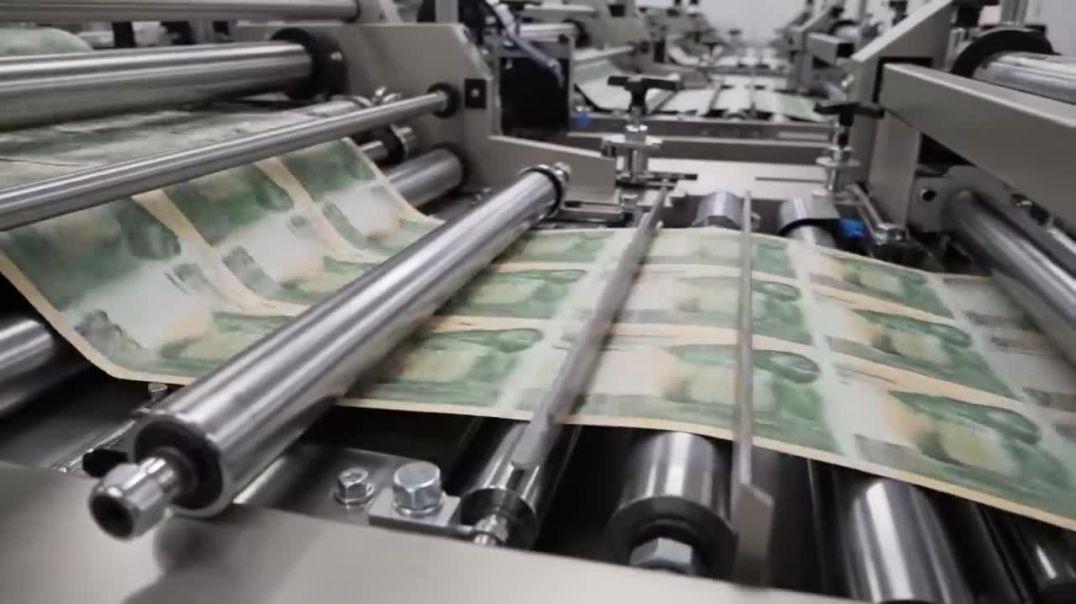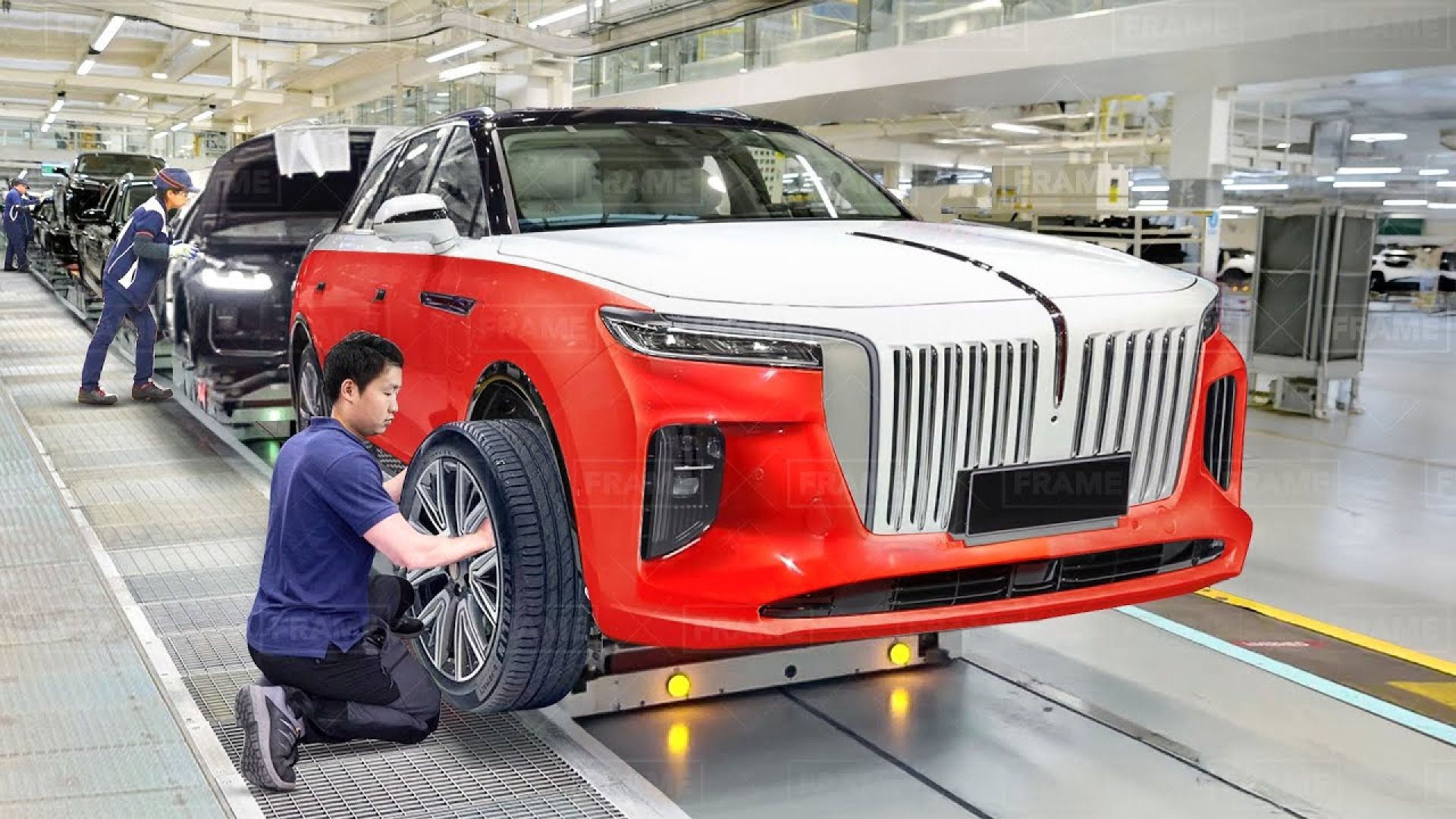94.7K Views· 09 April 2025
China Hits Back with 84% Tariff on US Goods: What This Means for Global Markets
In a dramatic escalation of trade tensions, China has announced an 84% tariff on a wide range of U.S. goods, marking a significant retaliation against the latest round of tariffs imposed by the United States. The move has sent shockwaves through global markets, triggering concerns over an economic slowdown and further strain in the already fragile trade relationship between the two superpowers.
What’s Behind China’s Bold Move?
The decision to impose such a high tariff comes in response to the ongoing trade war between the two largest economies in the world. The U.S. had previously announced new tariffs on Chinese products, citing concerns over intellectual property theft and unfair trade practices. In retaliation, China has targeted American agricultural products, technology exports, and other key sectors, sending a message of defiance in the face of mounting pressure from Washington.
How Will This Affect the Markets?
The announcement of an 84% tariff has already had a noticeable impact on global markets, with stock prices taking a hit in both the U.S. and China. Here’s how:
U.S. Stock Market Decline
U.S. stocks took an immediate dip as investors feared a prolonged trade conflict. Major indices such as the S&P 500 and NASDAQ saw significant drops, reflecting concerns about the global economic impact of the tariffs.
Chinese Markets React
Chinese stocks also fell sharply as the tariff escalation threatened to further derail the country's economic growth. Key sectors like tech and agriculture saw steep losses, particularly for companies reliant on U.S. exports.
Commodities and Supply Chains
The tariff could have wide-reaching effects on global supply chains, especially in industries that rely on Chinese manufacturing or U.S. exports. Markets for soybeans, corn, and other agricultural products could be particularly hard hit, given the reliance of China on U.S. imports.
What Products Are Affected?
The new tariff list is extensive and includes high-value products such as:
U.S. agricultural exports: Soybeans, corn, wheat, and other staples that form a major portion of China’s imports from the U.S.
Technology: Semiconductors, electronics, and communications equipment.
Luxury goods: Automobiles, wines, and high-end consumer products.
The 84% tariff on these goods will make American exports considerably more expensive for Chinese consumers and businesses, making it difficult for U.S. companies to remain competitive in the Chinese market.
Potential Long-Term Economic Fallout
While the immediate impact of this tariff increase is evident, the long-term effects could be more profound. Here are some possible scenarios:
Stalled Trade Negotiations
The tariff hikes could lead to further stalemates in trade talks, potentially delaying any resolution to the ongoing trade war. This uncertainty could prevent companies from making long-term investment decisions, slowing down global economic recovery.
Shift in Global Trade Patterns
With tariffs making American goods more expensive, businesses may look to shift their supply chains away from U.S. products. Other countries, particularly in Southeast Asia and Europe, could benefit from a reduced reliance on U.S. exports as trade routes are rerouted.
Inflation and Price Increases
In both the U.S. and China, consumers could see price hikes as businesses pass on the costs of tariffs. From electronics to food items, everyday products could become more expensive, affecting the cost of living in both countries.
Impact on Global Economic Growth
The escalating trade war between the two largest economies in the world could have a ripple effect on global economic growth. As both nations are major players in the global supply chain, disruptions in their trade relations could slow down growth in other regions, especially in emerging markets.
Looking Ahead: Can a Trade Deal Be Reached?
As the U.S. and China continue to escalate their tariff battles, the possibility of a trade deal seems increasingly uncertain. Both sides have shown reluctance to compromise on key issues like intellectual property rights and tariff reductions, making it difficult to find a middle ground.
However, with global markets feeling the heat, there may still be room for negotiations. Leaders in both countries may have to consider the long-term consequences of a protracted trade war and how it could impact not only their economies but the entire world’s.
Conclusion: A Dangerous Game
The latest tariff increase by China signals a dangerous escalation in the ongoing U.S.-China trade war, and the global economy is watching closely. With 84% tariffs on American goods, the balance of trade is shifting rapidly, and businesses, governments, and investors alike are bracing for what could be a volatile future.
Whether this move leads to an eventual resolution or further exacerbates tensions remains to be seen. One thing is clear: the world’s two largest economies are locked in a battle that will shape the global economy for years to come.
#chinatariffs #ustariffs #globalmarkets #uschinatradewar #84percenttariff #uschinarelations #tradewarimpact #globaleconomy #economicfallout #chinaretaliation



























70 Comments
JJRDeandre
23 days ago1 Day Bath Arizona
24 days agoParth Bhadaliya
24 days agolegacy Legends
29 days agoMeriCannin
1 month ago